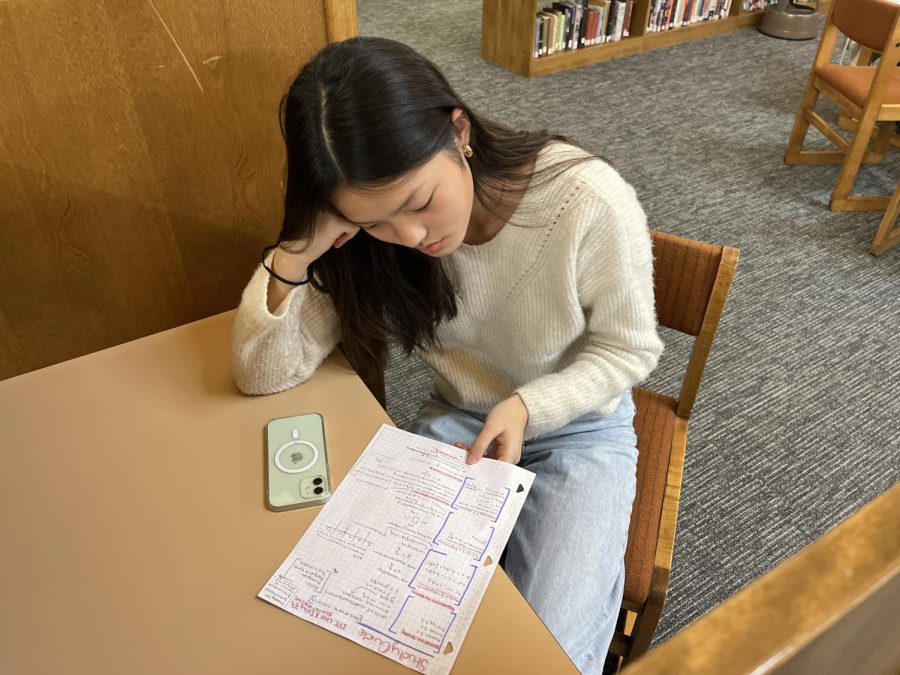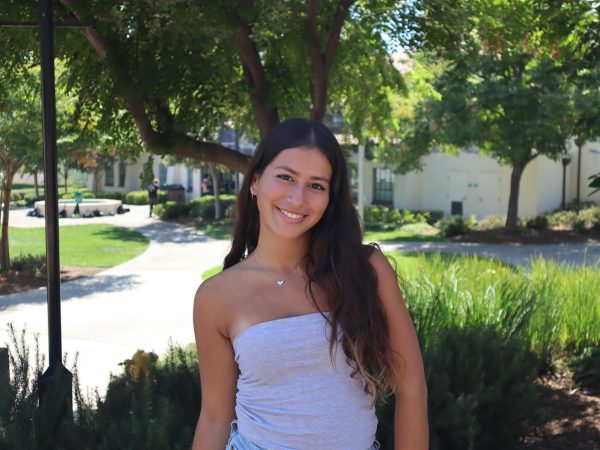When the break ended, most sophomores returned to the never-ending tests and summatives, thrown into a rollercoaster of balancing all the newly assigned work. The harsh workload following the return from winter break was drastically different from the relaxing week that many expected as the semester came to an end.
Coming back just to be struck with mountains of work including tests in IPC and their respective math classes piled up before the end of the semester. Students, however, found it to be refreshing coming back to the amazing community on campus, yet still felt so much stress regarding the workload.
“Break was just so relaxing, and then I came back to tons of schoolwork and tests which was sad,” Lizzie Whitaker (‘25) said. “I am trying my best to get my schoolwork done now so I don’t have a lot by the end of the week, leaving time to study.”
Their emotions were compounded by a schedule change that threw off the start of the week, which meant having four classes in one day. This change caused a tight homework schedule and an uprising in stress levels stress regarding a good study schedule.
“I get around 2-3 tests per day, and I believe my IPC summative and math assessment are on the same day,” Kaitlyn Metz (‘25) said.
Kaitlyn and Lizzie were not alone in this feeling; many other sophomores had very similar schedules. Some even had a society summative on the same day as math and IPC, leaving them burnt out at the end of the day and feeling incapable of tackling their homework on top of it all.
“The number of days in a unit tends to stay the same and so unfortunately that is why it piled up,” said Michael Hoe, Director of Studies. “We did try to implement an assessment schedule, but it’s just really challenging when things happen that are beyond our control.”
The welcome back advisory dinner on the second day back from break was a great bonding experience, but the timing of the event pushed back homework and studying which forced late-night study sessions and threw sleep schedules into a spiral.
“I do not think the timing of advisory dinner was good,” Saira Bhagat (‘25) said. “I think it would be better to have advisory dinner at a different time when we do not have back-to-back summatives.”
There were also limited office hours that week, since we came back on a Tuesday and were not given the opportunity to go until Wednesday. Additionally, sophomores in need of extensions had a difficult time getting them granted because of the nearing of the end of the semester.
Yet, sophomores need to deal with an additional stress factor: other grades seem to have a more spread-out schedule comparatively. Most of the other grade levels do not have this amount of summatives and tests until next semester. Juniors and seniors didn’t see this problem as acutely because they had a different testing schedule due to the elective courses that are a semester long and wrapping up.
“For juniors and seniors, since we only have two weeks between break and the end of the semester, only some classes are allowed to try and make it [summatives] spread out,” Mr. Hoe said. “The reason for this is they also have two major subjects that are ending, which makes it different than having a mid-year assessment.”
Sophomore schedules should be more lenient too because although we don’t have semester long courses, the overlapping summatives left many with messed up sleep schedules, stress, and overwhelming pressure. This stress filled time period has left sophomores ready for the semester to be over, and have Stress Less week begin!







![Many Webb students spend their free time in the library watching a popular TV show like Riverdale and Euphoria. “Based off what I’ve seen, like in Euphoria, because the actors are older, they don't showcase an actual high school life properly,” Sochika Ndibe (‘26) said. “Since [the actors] are older [and] playing a teenager, from a girl’s perspective, it is going to make you think you should look more developed at a young age.” The actor, who plays Veronica Lodge, was 22 years old at the time of filming.](https://webbcanyonchronicle.com/wp-content/uploads/2025/03/Antecol-Media-affects-how-society-functions-graphic-1200x900.png)

